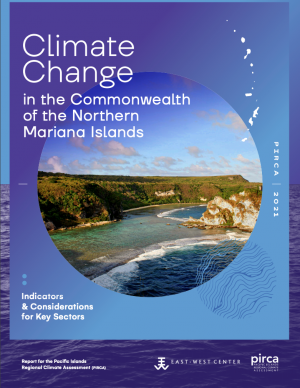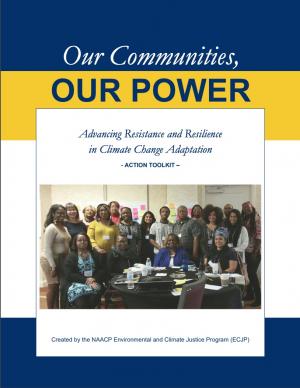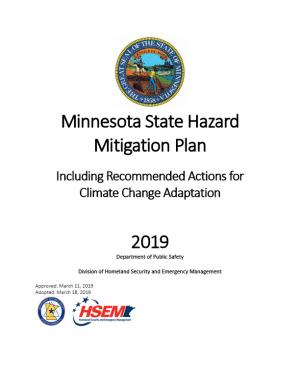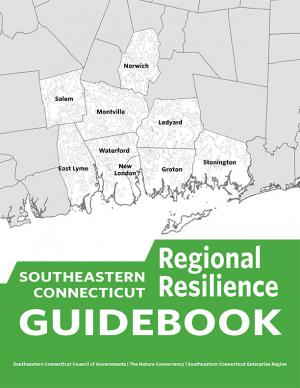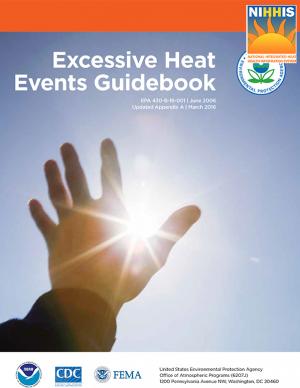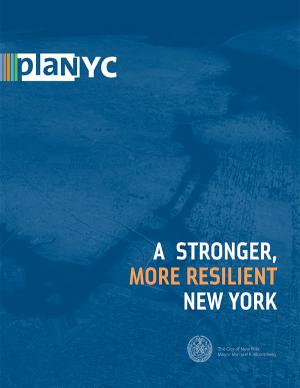Access a range of climate-related reports issued by government agencies and scientific organizations. Browse the reports listed below, or filter by scope, content, or focus in the boxes above. To expand your results, click the Clear Filters link.
This is the FY22 edition of the U.S. Gllobal Change Research Program's annual report to Congress mandated by the the Global Change Research Act. The report provides an overview of the Program’s progress in delivering on its strategic goals as well as a summary of agency expenditures under USGCRP’s budget crosscut.
Hotter weather, stronger typhoons, coral reef death, and physical and mental health risks are among the major challenges detailed in this report on climate change in the Commonwealth of the Northern Mariana Islands (CNMI). Threatened resources include high-value coastal infrastructure and the millions of dollars that ocean ecosystems add to the CNMI economy annually. This report provides guidance for decision makers seeking to better understand the implications of climate variability and change for CNMI and its communities and identifies the additional information and research needed to support responses that enhance resilience and help CNMI to withstand the changes to come.
The Beloved Community is a vision for our future where all people share equally in the wealth and bounty of the earth, where we protect its abundance, diversity, and beauty for future generations. In this vision of liberation, racism, exploitation, and domination are replaced by democracy, cooperation, interdependence, and love. To get there, we pursue transformative, systems-change solutions. What do we mean by this? The root causes of the problems our communities face—like climate change, racism, and economic inequality—are all deeply connected. Since the problems are connected, so are the solutions. The purpose of this toolkit is to put us on the path toward achieving this vision. Through the context of building equity and resilience into climate adaptation planning, we introduce strategies to transform our communities and, by extension, society. Our ultimate goal is to create lasting and systemic change. At the same time, we recognize the urgency of the issues our communities face and the need to take action now. That is why we pursue change at every scale—from policy changes to community-based projects—to institute the transformative change we need to uphold our vision of the beloved community.
This plan represents the efforts of the State of Minnesota in fulfilling the responsibility for hazard mitigation planning. The purpose of this plan is to identify the state’s major hazards, assess the vulnerability to those hazards, and take steps to reduce vulnerability using the technical and program resources of Minnesota agencies. The process has included consideration of current and expected future impacts from Minnesota’s already changing climate, as relevant to hazard mitigation planning. The plan identifies goals and recommends actions and initiatives for the state government to adapt to, reduce, and/or prevent injury and damage from hazardous events.
This guidebook results from the culmination of a year of dialogue among diverse stakeholders in southeastern Connecticut who defined challenges and solutions from extreme weather, climate change, and shifting social and economic conditions. Participants included representatives from nine municipalities, public and private utilities, public health departments, chambers of commerce, major employers, conservation organizations, academic institutions, community non-profits, and state agencies, among others. The dialogue captured six themed planning sectors (water, food, ecosystem services, transportation, energy, and regional economy) in a process that used surface and integrated solutions to address singular and multiple challenges across planning sectors. The guidebook provides a quick reference resource to help shape and inform actions that will advance a regional resilience framework for southeastern Connecticut; an accompanying Summary of Findings captures the project's final outcomes and conclusions, as well as providing a comprehensive account of the objectives, process, and details.
The U.S. Environmental Protection Agency produced this publication with assistance from federal, state, local, and academic partners. It is designed to help community officials, emergency managers, meteorologists, and others plan for and respond to excessive heat events. The guidebook highlights best practices that have been employed to save lives during excessive heat events in different urban areas. Originally published in June 2006, its Appendix A—a list of federal resources—was updated in March 2016.
Occupational exposure to heat can result in injuries, disease, reduced productivity, and death. To address this hazard, the National Institute for Occupational Safety and Health evaluated the scientific data on heat stress and hot environments and updated these criteria (last updated in 1986). This revision includes information about physiological changes that result from heat stress; evidence to redefine heat stroke and associated symptoms; and updated information on physiological monitoring and personal protective equipment and clothing that can be used to control heat stress.
PlaNYC is a long-term sustainability plan based on the latest climate science. This report includes ideas on how to rebuild the communities in New York City affected by Hurricane Sandy in 2012 and how to increase resilience and infrastructure of buildings city-wide in order to protect against future extreme events.
This guide is targeted towards program managers who work in climate change and health adaptation, and provides them with practical information and concrete guidance to mainstream gender throughout all four phases of the project cycle: identification, formulation and design, implementation, and monitoring and evaluation.


